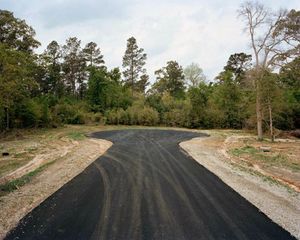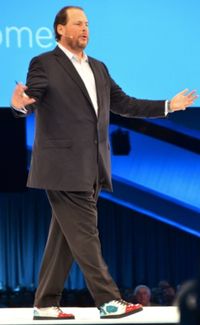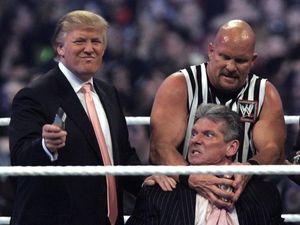
It’s an economic story.
The story would be easy to understand if pundits just left their offices and drove into any American exurb. Jobs and whole professions that once gave life to these places have disappeared.
Think for a moment about what people who live in suburban cul de sacs are most likely doing for a living.
Law schools are closing Doctors have been hauled out of their office towers and have become wage slaves in street corner shops.
These are the lucky ones.
Insurance agents have been replaced by apps. Travel agents disappeared long ago, replaced by sites owned by Priceline and Expedia. Teachers have lost their jobs and seniority to charter schools, retailers to Amazon.Com. Sell cars? You’re an order taker. Same if you’re in real estate.
The skills you spent a lifetime learning are becoming worthless.

Most new jobs in the typical American suburb pay very little.
Tweet a liberal tech leader about this and he’ll blame politicians. (That's true, but it's not helpful.) CEOs like Marc Benioff (left) add insult to injury by campaigning against states which, like Georgia, try to re-impose the old religious order, bringing the whole tech industry with them.
What this has done to America’s suburbs is palpable if you would open your eyes to it.
A generation ago people talked about the “Rust Belt” of cities and the “Sun Belt” of suburbs in the south and west. Today the sun is rising on parts of the Rust Belt but the Sun Belt has become an asphalt jungle.
There are compensations. You can get some outstanding Korean food around Duluth, near Atlanta, or Syrian food in Dearborn, near Detroit. Some of the best cooking in the world is now being done in suburban strip malls. But the tables are usually filled with swells from central cities, from research centers and university campuses, who heard about the place on Yelp or perhaps the Travel Channel. Ordinary suburbanites can’t get a reservation and often can’t afford the bill.
America’s suburbs are under economic siege. The old jobs are disappearing, thanks to technology. Long-time residents are being surrounded by immigrants, both skilled and unskilled. Politicians are making the same tired arguments back-and-forth. No one seems to hear them.
Wrestling hears them.

So, yes, the economy is doing fine. True, America is great again. But much of this country has been left behind by the app economy. Their jobs, their professions (including my own profession of journalism) are circling the drain, disappearing before a suburban dad’s very eyes.
These people are a minority. But they’re hurting, and they need a hero. Donald Trump is a hero for the New American Wasteland. He’s the face of the Asphalt Jungle.
Until politicians and pundits wake up to the economics of what is happening, they will be body-slammed by Donald Trump, and his crowds will continue to cheer themselves hoarse.










